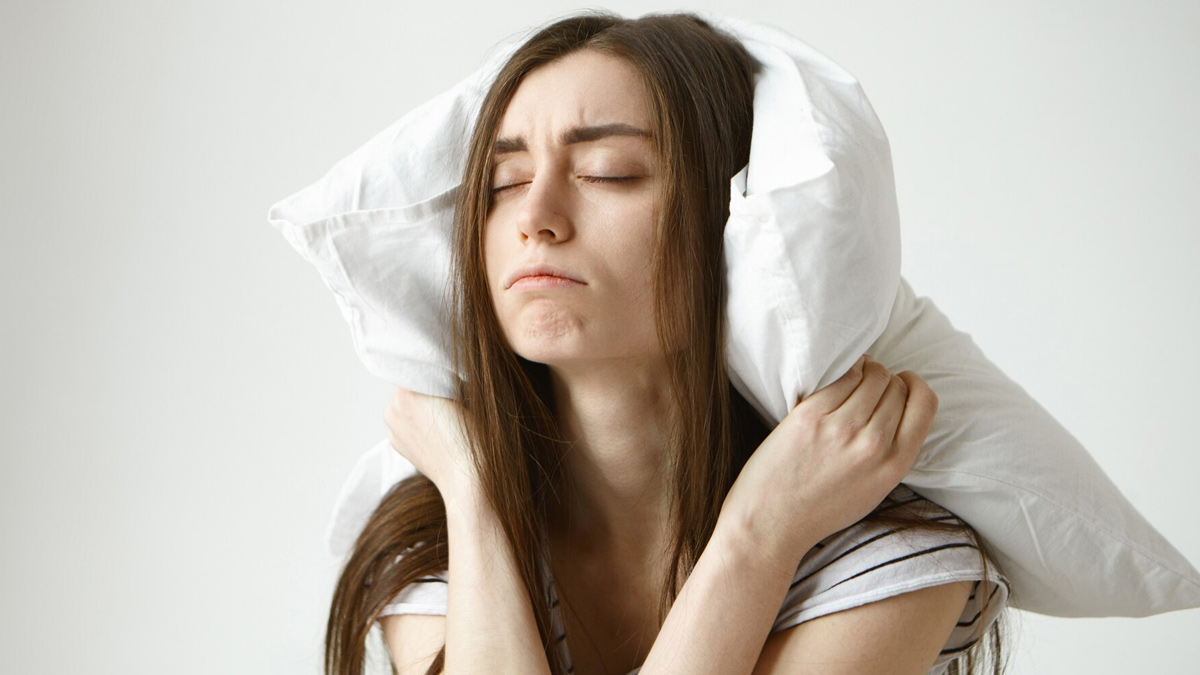
Polycystic Ovary Syndrome (PCOS) is a hormonal condition that affects women of reproductive age. While the exact cause of PCOS is unknown, experts suggest that factors such as environment, genetics, and lifestyle can contribute to the condition. From irregular periods to excess body hair to weight gain and infertility, PCOS can cause various symptoms. In some women, sleep issues are also a commonly reported concern.
Table of Content:-
In an interaction with the OnlyMyHealth team, Dr Sangeeta Raodeo, Consultant—Gynaecology and Obstetrics, Fortis Hospital, Mulund, explained the link between the two and shared tips to get better rest with PCOS.
Also Read: Anshula Kapoor Shares Delicious PCOS-Friendly Junk Food Swaps You’ll Love!
Why PCOS Contributes To Sleep Issues

“Women who have Polycystic Ovary Syndrome (PCOS) often have a hard time sleeping and can experience things like restless legs syndrome, feeling really tired or drowsy during the day, having trouble falling asleep, or experiencing sleep apnoea, which causes interrupted breathing during the night,” explained Dr Raodeo.
Research shows that women with PCOS often experience sleep problems like obstructive sleep apnoea and excessive daytime sleepiness, even if they are not overweight. These sleep issues may be linked to hormonal imbalances, insulin resistance, and changes in cortisol and melatonin levels, as noted in a 2018 study published in the journal Nature and Science of Sleep.
Additionally, anxiety, depression, smoking, alcohol use, and lack of exercise—common among women with PCOS—can contribute to poor sleep. While the exact impact of sleep disturbances in PCOS is unclear, both conditions are linked to a higher risk of heart disease and type 2 diabetes.
Insulin Resistance And PCOS Sleep Struggles

According to Dr Raodeo, poor sleep can lead to hormonal imbalances, increased stress levels, and disruptions in metabolic processes, all of which contribute to insulin resistance.
Insulin resistance is a condition where your body's cells don't respond properly to insulin, a hormone that helps regulate blood sugar.
“Insulin resistance can lead to weight gain, which can create issues like sleep apnoea, heightened irritability, and drowsiness, all of which lead to sleep problems. Thus, they are directly proportional to each other,” says Dr Raodeo.
Also Read: Debunking Myths: You Can Get Diagnosed With Type 2 Diabetes Even If You Don’t Eat Sugar
Can Lifestyle Changes Improve Sleep In PCOS Patients?

It is important to note that lifestyle changes can help manage PCOS symptoms, including poor sleep. Diet and exercise particularly help combat PCOS-related sleep problems. Some of the strategies include:
- Avoid consuming anything with caffeine at least five hours before going to bed; caffeine can make it hard for you to fall asleep and disturbs your body enough to make deep sleep impossible.
- Avoid drinking alcohol for at least four hours before going to bed because it can disrupt your sleep during the night.
- Avoid eating a big meal at least two to three hours before bedtime.
- Try to go to bed and wake up at a similar time every day.
- Stay off your phone at least an hour before you start getting ready for bed, as the ambient blue light that screens emit can make it harder for your body to get Rapid Eye Movement (REM) sleep.
Conclusion
Sleep disturbances are a common but often ignored sign in women with PCOS. Hormonal imbalances, insulin resistance, and lifestyle factors all contribute to disrupted sleep, which in turn can worsen PCOS symptoms. However, making proper lifestyle changes, such as maintaining a consistent sleep schedule, maintaining a healthy weight by eating healthy, exercising regularly, avoiding caffeine and alcohol before bed, and limiting screen time, can help improve sleep quality. If sleep problems persist, consulting a doctor may prove beneficial.
Also watch this video
How we keep this article up to date:
We work with experts and keep a close eye on the latest in health and wellness. Whenever there is a new research or helpful information, we update our articles with accurate and useful advice.
Current Version